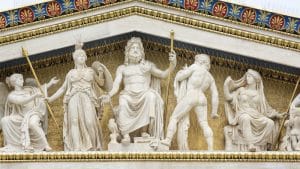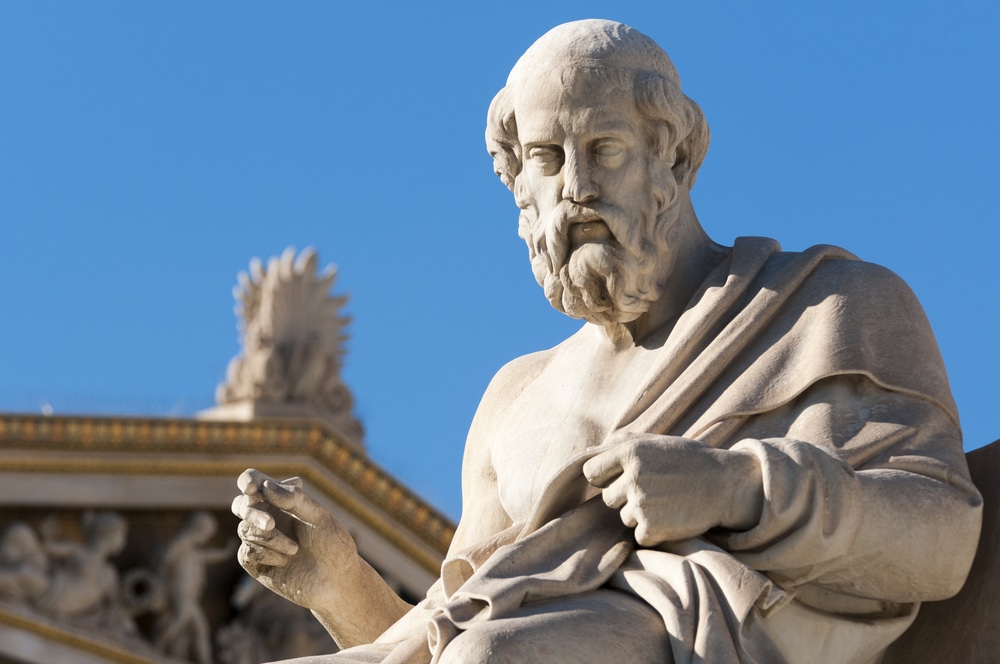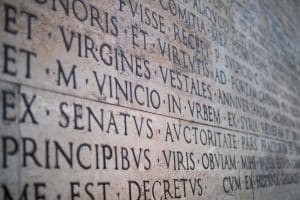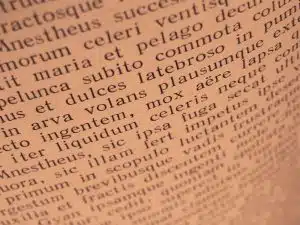Exploring the Classics at the University of Pennsylvania
If you’re interested in studying the classics, the University of Pennsylvania is an excellent place to start. The classics program at UPenn has a rich history and offers a range of courses that cover ancient Greek and Roman literature, history, philosophy, and culture. In this article, we’ll explore the history and significance of the UPenn Classics program, take a look at the courses offered, and delve into the impact of studying classics on other fields of study. We’ll also examine the relevance of classics to modern society and culture, investigate the importance of learning Latin, and discuss opportunities for studying abroad. So, let’s get started!
The History of the Classics Program at the University of Pennsylvania
The classics program at UPenn has a long and distinguished history. It was one of the founding departments of the university, established in 1755, and has been shaping the study of classics ever since. Over the years, the department has produced many notable scholars, including the historian and classicist Moses Finley and the philosopher Martha Nussbaum, who wrote extensively on ancient Greek ethics and political theory.

The Significance of Studying Classics in Today’s World
Even though the classics are, by definition, ancient, the study of classics is still highly relevant today. From literature to politics to popular culture, the ideas and stories of ancient Greece and Rome continue to shape our world in countless ways. For example, the Greek concept of democracy, which was developed in Athens over 2,500 years ago, remains a fundamental principle of modern politics. Similarly, the stories of ancient mythology continue to inspire artists, writers, and filmmakers today. By studying the classics, we gain a deeper understanding of our own culture and the world around us.
Moreover, studying classics can also enhance critical thinking skills and improve language proficiency. The study of ancient languages such as Latin and Greek can help students develop a better understanding of the structure and grammar of modern languages. Additionally, the analysis of ancient texts and ideas requires careful attention to detail and the ability to draw connections between seemingly disparate concepts. These skills are highly valued in many fields, including law, medicine, and business.
A Look into the Curriculum: Courses Offered by the Classics Department at UPenn
The classics department at UPenn offers a wide range of courses that cover everything from ancient literature to mythology to archaeology. Some of the courses available include “Introduction to Greek History and Culture,” “Latin Literature and Culture,” “Ancient Philosophy,” and “Archaeology of Ancient Rome.” Students can also take courses that explore the intersection of classics with other fields, such as “Classics and the Law” and “Medicine in Antiquity.”
One unique aspect of the classics department at UPenn is the opportunity for students to participate in archaeological digs. The department offers a summer program where students can travel to Greece or Italy to work on excavations and gain hands-on experience in the field. This program allows students to apply the knowledge they have gained in the classroom to real-world situations and make meaningful contributions to the study of ancient history.
In addition to traditional courses and fieldwork opportunities, the classics department at UPenn also hosts a variety of events and lectures throughout the year. These events bring in scholars and experts from around the world to share their research and insights with students and faculty. Some recent events have included a lecture on the role of women in ancient Greek society and a panel discussion on the legacy of the Roman Empire.
The Role of Classics in Understanding Modern Society and Culture
As we’ve already mentioned, the classics continue to influence and shape our society and culture today. By studying the classics, we can gain a deeper insight into how our world has been shaped by the past. For example, studying ancient literature can help us understand the roots of literary genres like epic poetry and drama. Similarly, studying ancient philosophy can help us understand the origins of ideas still debated today, such as the nature of justice and the state’s role.
Furthermore, studying the classics can also provide us with a greater appreciation for the diversity of human experience throughout history. By examining the art, literature, and philosophy of ancient civilizations, we can gain a better understanding of their values, beliefs, and ways of life. This can help us to develop a more nuanced and empathetic perspective on the world around us, and to recognize the richness and complexity of human culture.
Famous Alumni from UPenn’s Classics Program and Their Contributions to Society
UPenn’s classics program has produced many notable alumni over the years. One such alum is the historian and classicist Moses Finley, who is known for his work on ancient economics and the role of slavery in ancient Greece. Another notable alum is the philosopher Martha Nussbaum, who has written extensively on ancient Greek philosophy, literature, and ethics. She is also known for her work on social justice and the capabilities approach, a theoretical framework for understanding human well-being. These and other alumni of the classics program at UPenn have made significant contributions to their fields and society as a whole.
Another notable alum from UPenn’s classics program is Mary Beard, a renowned classicist, and historian who has written extensively on ancient Rome and its culture. She is also known for her work on gender and power in the ancient world and has been a vocal advocate for diversity and inclusivity in academia.
In addition to these scholars, UPenn’s classics program has also produced notable alumni in other fields. For example, the actor and comedian John Mulaney studied classics at UPenn before pursuing an entertainment career. Mulaney has cited his background in classics as a significant influence on his comedic style and has even incorporated references to ancient Greek and Roman culture into his stand-up routines.
The Impact of Classics on Other Fields of Study, such as Law and Medicine
Classics has had a significant impact on many other fields of study, including law and medicine. For example, the study of Latin can be particularly helpful for students pursuing a career in law, as legal terminology often has Latin roots. Similarly, the study of ancient medicine can provide insights into the origins of medical concepts and practices that are still in use today.
Furthermore, the study of ancient Greek literature and philosophy has also had a profound impact on the field of medicine. The Hippocratic Oath, still taken by doctors today, was influenced by the ethical principles of ancient Greek philosophy. The concept of the four senses of humor, which was central to ancient Greek medicine, also influenced medical practices for centuries. Understanding the historical context and origins of these concepts can provide valuable insights for modern medical professionals.
Exploring Ancient Greek and Roman Literature and its Relevance Today
Ancient Greek and Roman literature has had a profound impact on Western literature and culture as a whole. From epic poems like Homer’s “Iliad” and “Odyssey” to plays by Aeschylus, Sophocles, and Euripides, the works of antiquity continue to captivate and inspire readers today. By studying these works, we can gain a deeper appreciation for the origins of literary genres like epic poetry, drama, and novel. We can also better understand how ancient works have influenced and shaped modern literary traditions.
Moreover, ancient Greek and Roman literature provides us with a glimpse into the values, beliefs, and social structures of these civilizations. For instance, the portrayal of women in ancient literature can shed light on the status of women in ancient societies. Similarly, the themes of honor, loyalty, and justice in ancient literature can help us understand the moral codes of these civilizations. By examining these works, we can gain a better understanding of the historical and cultural contexts in which they were produced, and how they continue to shape our understanding of the world today.
The Importance of Learning Latin in the 21st Century
Even though Latin is no longer a spoken language, it remains an important subject of study for students interested in the classics and many other fields. Latin is particularly helpful for students pursuing careers in law, medicine, and the humanities, as it provides a foundation for understanding the origins of many key terms and concepts. Additionally, studying Latin can help students develop a deeper appreciation for the structure and grammar of the language as a whole.
Furthermore, learning Latin can also enhance one’s understanding of history and culture. Many important historical documents, such as the works of Julius Caesar and Cicero, were written in Latin. By studying Latin, students can gain a better understanding of the context and significance of these texts, as well as the societies in which they were produced.
Finally, studying Latin can also improve one’s cognitive abilities. Learning a new language has been shown to increase brain function and improve memory retention. Latin, in particular, requires a great deal of attention to detail and analytical thinking, which can help students develop critical thinking skills that are valuable in many areas of life.
Studying Abroad: Opportunities for Classicists at UPenn
UPenn offers many opportunities for students studying classics to study abroad and experience other cultures firsthand. For example, the department sponsors a summer program in Rome, where students can study ancient Roman history, art, and architecture. There are also opportunities for study abroad in Greece and other countries. These programs provide an invaluable opportunity for students to expand their knowledge of the classics and gain a deeper understanding of the cultures that produced them.
In addition to these study abroad programs, UPenn also offers opportunities for classicists to participate in archaeological digs and fieldwork. Students can work alongside experts in the field to excavate and analyze ancient sites, gaining hands-on experience and contributing to ongoing research. These experiences not only enhance students’ understanding of the classics but also provide valuable skills and knowledge for future careers in archaeology and related fields.
Conclusion
As we’ve seen, the classics program at the University of Pennsylvania is a valuable resource for students interested in studying ancient Greek and Roman culture, literature, and history. The department offers a wide range of courses that cover everything from ancient philosophy to archaeology and provides opportunities for students to study abroad and gain firsthand experience of other cultures.
Studying the classics is also highly relevant in today’s world, as the ideas and stories of antiquity continue to shape our world in countless ways. Whether you’re interested in literature, history, philosophy, or any other field, studying classics at UPenn can provide a rich and rewarding experience that will stay with you long after graduation.
Furthermore, the classics program at UPenn has a strong emphasis on interdisciplinary studies, allowing students to explore connections between ancient and modern cultures, as well as between different fields of study. This approach encourages critical thinking and creativity and prepares students for a wide range of careers in fields such as law, education, journalism, and more.
Finally, the classics program at UPenn is supported by a dedicated faculty who are experts in their fields and passionate about teaching. They provide individualized attention and mentorship to students, helping them to develop their skills and pursue their interests. With its rigorous curriculum, diverse opportunities, and supportive community, the classics program at UPenn is an excellent choice for anyone interested in exploring the rich and fascinating world of ancient Greece and Rome.









































